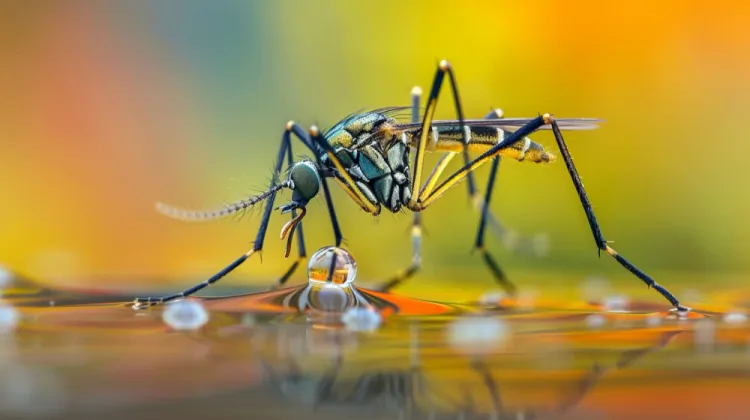West Nile Fever in Kerala 2024
Everything you need to know about West Nile Fever in Kerala, underpinning the importance of awareness, prevention, and response strategies.

West Nile Fever in Kerala: What You Need to Know
In recent years, the global health landscape has been teeming with challenges, one of which has made its presence felt in the scenic state of Kerala, India. West Nile Fever, a mosquito-borne disease, has raised concerns among healthcare professionals, local residents, and travel enthusiasts alike.
In this comprehensive guide, we'll cover everything you need to know about West Nile Fever in Kerala, underpinning the importance of awareness, prevention, and response strategies tailored to combat this growing health concern.
Understanding West Nile Fever
West Nile Fever is caused by the West Nile virus, primarily transmitted to humans through the bite of an infected mosquito. The virus is a member of the Flavivirus genus, which counts dengue, yellow fever, and Zika among its cousins. Interestingly, the virus has birds as its natural reservoirs, making bird-migratory routes pivotal in understanding the spread of the disease across continents, including Asia.
In Kerala, known for its lush landscapes and water bodies that contribute to its unique ecosystem, the combination of high humidity and a conducive breeding environment for mosquitoes has led to the surfacing and re-emergence of vector-borne diseases, with West Nile Fever being a significant concern.
West Nile Virus Symptoms and Risks
The clinical presentation of West Nile Fever can range from asymptomatic to severe neurological illness. Most people (70-80%) infected with the West Nile virus do not exhibit any symptoms. When symptoms do occur, they are often flu-like, including fever, headache, body aches, skin rash, and swollen lymph glands.
In a minority of cases, the virus can invade the central nervous system, leading to meningitis, encephalitis, or acute flaccid paralysis. These severe manifestations are more common in the elderly and those with weakened immune systems, underscoring the need for heightened vigilance among these populations.
West Nile Fever Diseases
Kerala, with its high population density and tropical climate, is an ideal breeding ground for mosquitoes, amplifying the risk of vector-borne diseases like West Nile Fever. The state's health department has been proactive in its efforts to tackle the menace, conducting surveillance and control measures aimed at reducing mosquito populations and limiting human exposure to these vectors.
Notably, the state reported its first case of West Nile Fever in 2011. Since then, sporadic cases have been reported, prompting health authorities to prioritize public education, source reduction (eliminating mosquito breeding sites), and vector control efforts.
Prevention: The First Line of Defense
Preventing West Nile Fever starts with community and individual actions focused on reducing mosquito exposure. Here are some effective strategies:
- Use Insect Repellent: Apply EPA-registered insect repellent on exposed skin and clothing when outside, especially during peak mosquito biting hours from dusk to dawn.
- Wear Protective Clothing: Long sleeves, pants, and socks can help prevent mosquito bites.
- Maintain Window and Door Screens: Ensure screens are in good repair to keep mosquitoes out of homes.
- Eliminate Standing Water: Empty, cover, or treat any items that hold water, such as buckets, planters, and birdbaths, to reduce mosquito breeding sites.
West Nile Fever Latest Diseases
For healthcare professionals in Kerala and beyond, staying abreast of the latest trends in vector-borne diseases is critical. Enhanced surveillance, timely diagnosis, and appropriate management of cases are paramount to controlling the spread of West Nile Fever. Public health campaigns focusing on prevention, symptom recognition, and when to seek medical care are essential components of the broader response to this disease.
Travel enthusiasts planning to visit Kerala should heed travel advisories and take preventive measures to protect against mosquito bites. Awareness of the risks and symptoms associated with West Nile Fever can empower visitors to make informed health decisions during their stay.
Concluding Thoughts
West Nile Fever represents a notable public health challenge in Kerala, exacerbated by environmental and ecological factors conducive to vector proliferation. Through collective efforts aimed at awareness, prevention, and mosquito control, it is possible to mitigate the impact of West Nile Fever on the local population and visitors alike.
Remember, combating vector-borne diseases like West Nile Fever is a shared responsibility. By adopting recommended preventive practices, supporting public health initiatives, and staying informed, we can all contribute to a healthier, safer Kerala.
What's Your Reaction?

















